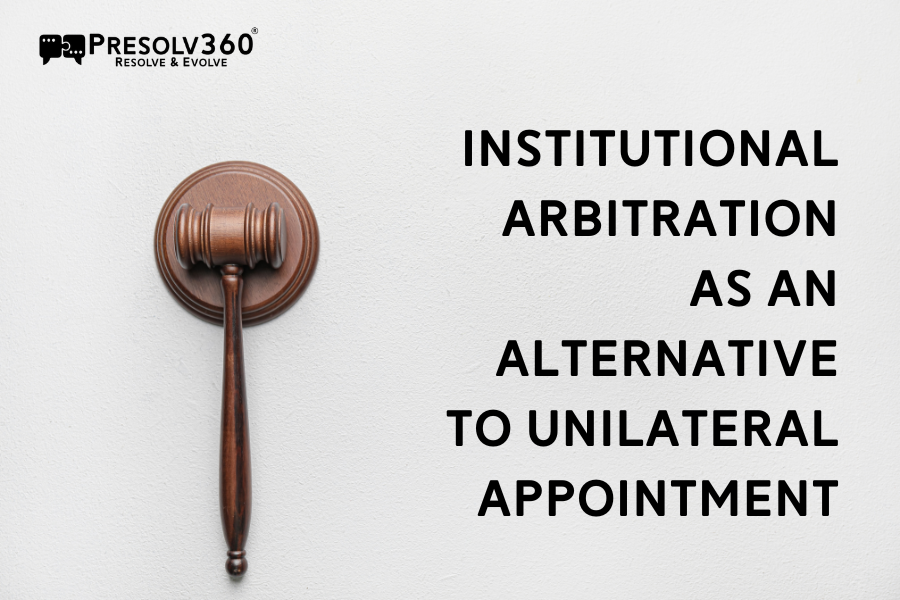By Arif Mohammed Madani
Recent years, particularly since 2015, have seen certain crucial amendments relating to the law on appointing sole arbitrators. The government amended the Arbitration and Conciliation Act, 1996 (the Act) to include additional Section 12(5) and Schedule VII. Schedule VII saw the addition of certain categories of relationships in order to determine the ineligibility of an arbitrator. Accordingly, as per Section 12(5), any person whose relationship with the parties or counsel or subject matter of the dispute falls under any one of the categories specified in the said schedule shall be ineligible for appointment as an arbitrator. This ineligibility is curable. As per the proviso to Section 12(5), the parties can waive its applicability by an express agreement in writing. This needs to happen subsequent to the dispute having arisen between them.
Based on the above amendments, in the judgements of TRF Ltd. v. Energo Engg. Projects Ltd., (2017) 8 SCC 377, Perkins Eastman Architects DPC v. HSCC (India) Ltd., (2020) 20 SCC 760: 2019 SCC OnLine SC 1517, etc., the Hon’ble Supreme Court and various High Courts have laid down that notwithstanding any prior agreement to the contrary, no unilateral appointment of sole arbitrator is permissible, except by specific and express waiver in writing as per proviso to Section 12 (5). The Courts have also laid down that mere participation in proceedings will not amount to any waiver. Section 4 of the Act constitutes a general exception. Hence, the proviso to Section 12(5) is a special law and particularly deals with the appointment and eligibility of arbitrators.
On the basis of the above judgements, the Courts have set aside awards under Section 34 of the Act. They have also dismissed enforcement/execution petitions under Section 36 of the Act on the ground of unilateral appointment of arbitrators.

Thus, it is essential to evaluate various options and proceed with the best one regarding arbitral proceedings.
The available options are as under:
A: To proceed with the existing procedure of unilateral appointment of arbitrators.
B: To approach the High Courts under Section 11 of the Act for the appointment of arbitrators.
C: To administer arbitration from an ADR/ODR institution through an institutional route.
The pros and cons of the aforesaid options are as under:
OPTION A: To proceed with the existing procedure of unilateral appointment of arbitrators
The current appointment procedure leads to the expedient appointment of arbitrators and early disposal of disputes. However, the recent amendments and judicial precedents laid down by the Supreme Court of India and various High Courts have created a legal bar against the unilateral appointment of sole arbitrators.
Courts would continue to allow challenges under Section 34 of the Act and reject executions of awards. This would further aggravate the loss to the company. By the time of setting aside the arbitration award or dismissal of the execution petition, either the limitation to sue would expire or limitation law would bar the claim of the company. The company would have to bear considerable litigation expense in initiating and participating in the arbitration proceedings once again.
OPTION B: To approach the High Courts under Section 11 of the Act for the appointment of arbitrators
Appointing an arbitrator by petitioning the jurisdictional High Court under Section 11 of the Act is the safest method. However, it requires considerable expenditure and is extremely time-consuming. For each arbitration proceeding, a separate petition for the appointment of the arbitrator would be required. The company’s fee schedule for availing of panel advocates’ services in the High Court is INR 11,000 per case. It would also have to bear the same for each of its claims. Besides this, the arbitrator’s fee, if appointed by the High Court, is decided as per Schedule IV of the Act. This would amount to INR 30,000 payable by each party.
After presenting a petition under Section 11 to the concerned High Court, it takes around 2-3 years for the matter to be disposed of. If the trend of appointment by the High Court increases, the heavier burden on courts would also increase this duration.
This alternative, is, therefore, neither economically viable nor efficient.
OPTION C: To administer arbitration from an ADR / ODR institution through an institutional route
Upon enquiry, the Department of Legal Affairs, Ministry of Law & Justice, on 18th September 2020, addressed a notification to all ADR Institutions, including Presolv360, for hosting the list of institutions offering ADR mechanisms (including ODR). Presolv360 has also been empanelled by the Bombay High Court and other Courts as a Mediation Institution.
No company has incorporated a provision of reference to any institution in their loan or arbitration agreement. But the Act provides that the parties can seek administrative assistance to facilitate the conduct of arbitration proceedings under Section 6 of the Act. If the company, with the intent of securing assistance, notifies the opposite party in the pre-arbitration notice under Section 21 of the Act, and if the opposite party does not object to the same, one can regard its omission to object as a waiver under Section 4 of the Act. Thereafter, one may request the institution Presolv360 to register and administer the arbitration proceedings. This waiver is distinct from the specific waiver in Proviso to Section 12(5) of the Act.
Since this waiver comes under Section 4 of the Act, and since the appointing authority is not the company, it does not attract all of the above amendments and judgements, making them inapplicable.
A Commercial Court in Bengaluru, after considering the objections, found this method of appointment of an arbitrator to be correct.
While it is most expedient, safe and proper to incorporate an appropriate clause referring disputes to an ADR/ODR institution such as Presolv360 in the loan or arbitration agreements, for legacy agreements (where including such a clause may be impractical), still the best option amongst all the alternatives would be OPTION C. It will be the safer and more efficient and cost-effective approach. This is perhaps why more than 50 finance companies have been conducting arbitrations through ODR.
Conclusion
It is thus safe to conclude that until an appropriate clause referring disputes to an ADR/ODR institution is incorporated by the company, OPTION C must be adopted for existing claims. To avoid issues with the unilateral appointment of arbitrators, recourse to seeking administrative assistance from an ODR institution must be considered.
Arif Mohammed Madani is a retired district judge with 25 years of judicial experience and over 10 years of experience as an arbitrator.




